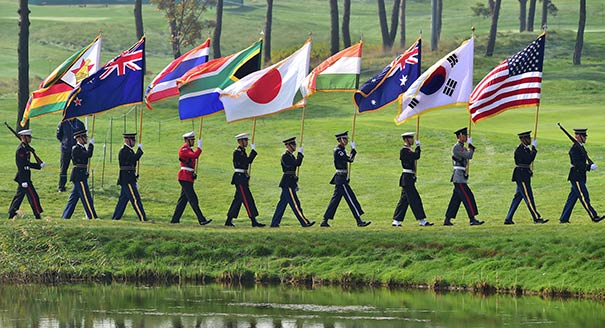Registration
You will receive an email confirming your registration.
This event is now closed. On-site registration will be available. Watch live at 2 p.m. EST.
Countering traditional notions of balance-of-power theory, smaller states have not joined together militarily to oppose the United States’ rising power at the end of the Cold War, Chinese aggression in the South China Sea, or Russian offensives along its Western border. Instead, balance-of-power politics has taken a different form.
In a new book, Restraining Great Powers: Soft Balancing from Empires to the Global Era, T.V. Paul argues that leading powers have engaged in “soft balancing,” which seeks to restrain threatening powers through the use of international institutions, informal alignments, and economic sanctions. Placing the evolution of balancing behavior in historical context, Paul examines how subtler forms of balance-of-power politics can help states achieve their goals against aggressive powers without wars or arms races. Paul will be joined in conversation by Richard Fontaine and Ellen Laipson. Carnegie’s Ashley J. Tellis will moderate. Copies of the book will be available for sale.
A livestream will be available on this page starting at 2:00 p.m. EDT on Thursday, October 18.
T.V. Paul
T.V. Paul is James McGill Professor of International Relations in the department of Political Science at McGill University.
Richard Fontaine
Richard Fontaine is the president of the Center for a New American Security (CNAS).
Ellen Laipson
Ellen Laipson is the director of the Master’s in International Security degree program and the Center for Security Policy Studies at the Schar School of Policy and Government at George Mason University.
Ashley J. Tellis
Ashley J. Tellis holds the Tata Chair for Strategic Affairs and is a senior fellow at the Carnegie Endowment for International Peace.
